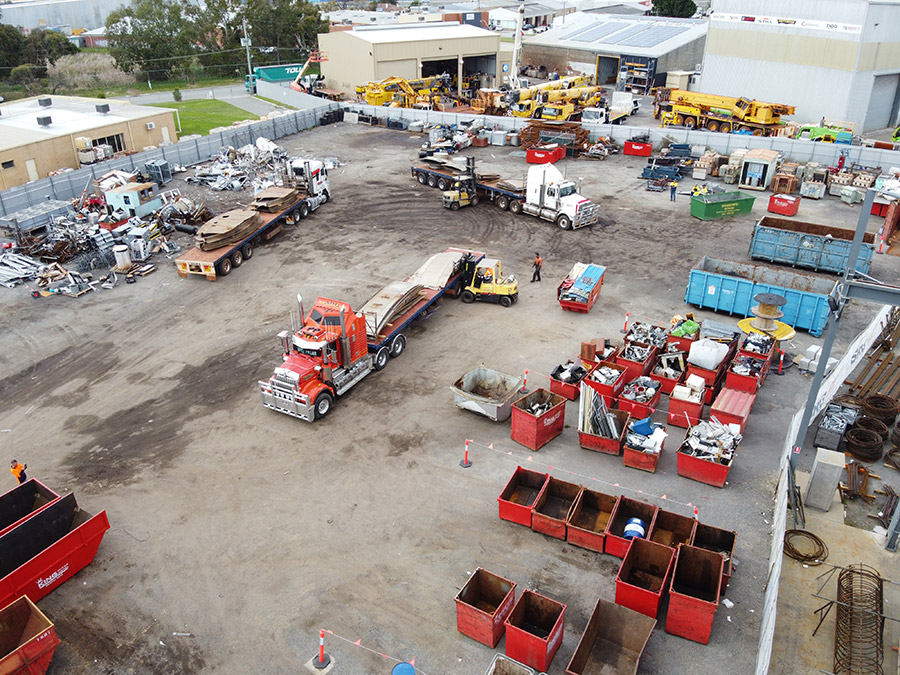Published on 05/08/2023
By: Admin
Top Tips for Sorting Scrap Metal for Recycling.
In our environmentally-aware society, how should we address the challenge of metal recycling? Unlike paper or cardboard, metal is a resilient substance and doesn’t naturally decompose. Nevertheless, it possesses the potential for a renewed existence, thanks to dedicated recycling facilities that are eager to purchase metal from you, such as King Scrap Metal.
Sorting scrap metals into their correct categories not only reduces the time of processing but it also maximises the value of the scrap when you sell it.
Within this blog post we will delve into the precise methods for sorting your scrap metal, allowing you to take as much useful information as possible from it!

Phone Ahead
Every scrap metal yard has its own protocols and regulations, so its recommended that you call ahead to check if there are any specific guidelines you need to adhere to when sorting and disposing of your scrap metal. Certain facilities may have restrictions, so it’s important you won’t be in breach of that.
Ferrous Or Non-Ferrous?
A key to identifying the specific category of your scrap metals, a fundamental step is to determine whether the metal is ferrous (containing iron) or non-ferrous (lacking iron content). A simple technique for differentiation involves utilizing a magnet – metals that are attracted are ferrous, whereas those that exhibit no magnetic attraction are non-ferrous. Typically, non-ferrous metals hold a higher financial value.
Separate them Further
Ensure you have a separate container for each type of metal – mixing the metals may complicate the recycling process. Plus, certain materials are more valuable than others, including copper, so separating it out will ensure you’re getting the best value for each type of metal.
Know your Ferrous Metals
Generally ferrous metals are more prone to rusting than others, due to their rich iron content. Many guides exist online to spot the difference, but here are some key features of common ferrous metals:
- Steel: solid, and may rust slightly
- Stainless Steel: may rust slightly
- Tin: bendy and may possibly crack
- Lead: very heavy, so its weight is a useful indicator

Know your Non-Ferrous Metals

Non-ferrous metals are often more valuable than ferrous, as they boast several desirable properties such as being lightweight, highly conductive and resistant to corrosion. Here are some key non-ferrous metals:
- Copper: Has a distinctive red / orange colour and is often found on piping, wiring and in plumbing and electrical settings
- Brass: Often a yellowish colour, great at resisting corrosion, including highly-corroding salt water
- Aluminium: Silver in colour and has many uses from drinking cans to window frames
How contaminated is it?
If the metal is encrusted with rust, grime or stubborn dirt, it will likely require more processing than clean metals. Place soiled or dirty metals into one pile and clean metals into another. Another form of contamination could come in the sense of the metal being part of an object that has several different metal types affixed together. Make the metal as pure as possible within your skillset before brining it to recycle.
Benefit from a Collection Service
Save yourself the journey and instead have your scrap metal collected directly from your home or business. Companies such as King Scrap Metal will arrange a collection at a time that’s convenient for you, collecting from commercial and industrial companies all across western Australia.
King Scrap Metal is a well-established, reliable metal recycler, and provide a variety of services for both domestic and commercial customers alike. Whether you’re looking for scrap metal recycling or are searching for reliable scrap metal bin hire, we have an array of waste management and recycling solutions to suit you. Simply contact our friendly team today to find out more.